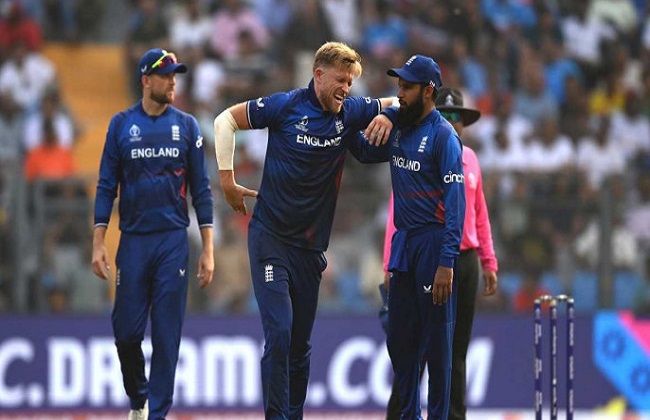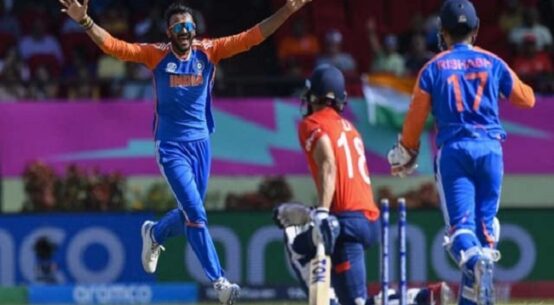
Reigning champions England have lost three of their opening four World Cup matches, with Saturday’s 229-run thrashing by South Africa in Mumbai their heaviest one-day international defeat. AFP Sport looks at where things have been going wrong for Jos Buttler’s men in the 50-over game.
Decision-making
England had the chance to dictate terms against South Africa after Jos Buttler won the toss in Mumbai. Yet despite the oppressive heat and humidity he chose to bowl, exposing his entire side to the energy-sapping conditions at the Wankhede Stadium.
Buttler, speaking at the toss, said “this is generally a good ground for chasing”.
But, not for the first time, it looked as if England were making a move based on meagre historical evidence rather than confronting the immediate present of fielding first in the heat of the afternoon.
Several players suffered with paceman David Willey among the worst-affected as he struggled with cramp.
“On reflection, I thought the heat was more than what we bargained for,” said England white-ball coach Matthew Mott.
But given England have been in India for several weeks, they had little reason to be surprised by the weather in Mumbai.
Former England captain Nasser Hussain was scathing, contrasting the current approach with that of 2019 World Cup-winning skipper Eoin Morgan.
“Eoin Morgan used statistics, but there was a lot of gut feeling there too,” Hussain told Sky Sports. “You need to get your decisions right, don’t just go to your default settings.”
Chasing no longer England’s strength
Buttler’s toss call was all the more surprising given that one statistic he should have been aware of is England’s poor recent record batting second in ODIs — Saturday’s reverse was their seventh loss in their last eight completed run-chases at this level.
That list includes a 69-run defeat by Afghanistan in their previous World Cup match, although the temptation to dismiss that loss as a ‘freak result’ may have clouded their thinking.
“The last time both England and South Africa played, they fell short chasing the target, so they need to be careful about what stats they are looking at,” said Hussain.
Ageing side lack new-ball penetration
With the exception of Reece Topley, whose World Cup could be over after he suffered a hand injury on Saturday, England have struggled to make an impact with the new ball.
All three of their defeats have featured a major innings by an opposition opener, with the 85 by South Africa’s Reeza Hendricks the latest, as well as significant top-order partnerships.
Chris Woakes was dropped after taking just two wickets in three games at a hugely expensive average of 67.5, but his replacements fared little better as the Proteas piled up a mammoth 399-7.
England have long prided themselves on consistency of selection, yet they recalled Ben Stokes, Willey and Gus Atkinson against South Africa in place of Liam Livingstone, Sam Curran and Woakes.
Even then, they fielded an XI featuring just three players under the age of 32, a sign of how reliant T20 world champions England have become on past ODI glories since 2019.
The ease with which Stokes — out for just five on Saturday in his first match of the tournament — was allowed to reverse his ODI retirement for the World Cup, despite ongoing doubts over his bowling fitness, spoke volumes.
Meanwhile the downgrading of the domestic 50-over competition to the margins of the English season has hampered the development of a new generation of ODI cricketers.
Having revamped their one-day game after a 2015 World Cup debacle, England may need a fresh re-think after this edition as well.


